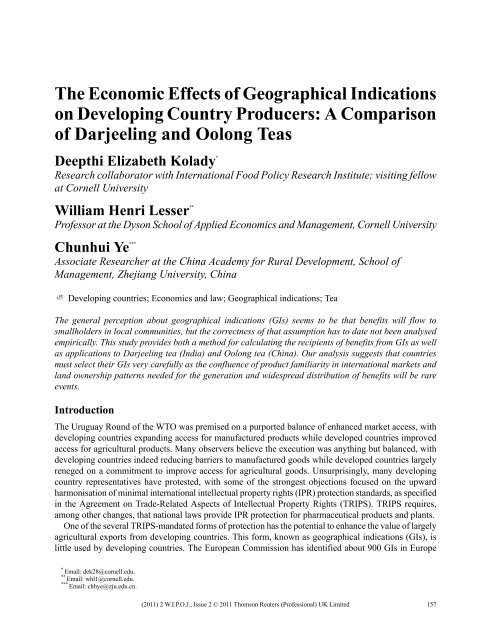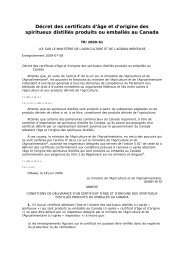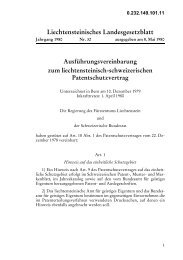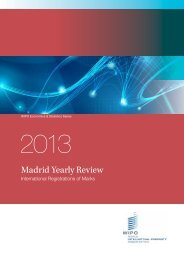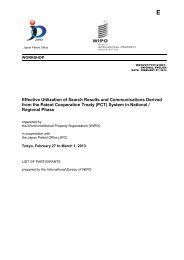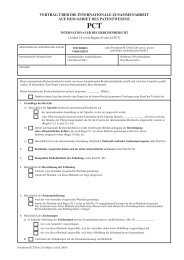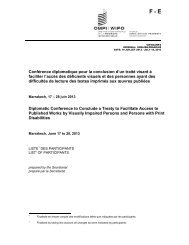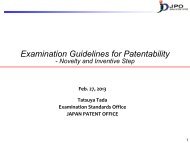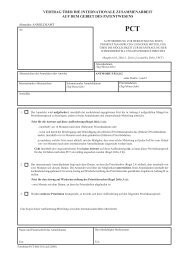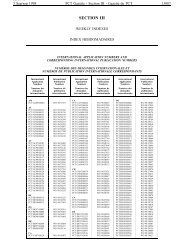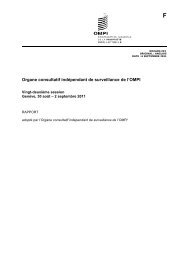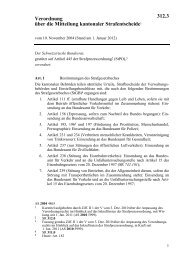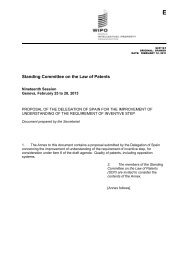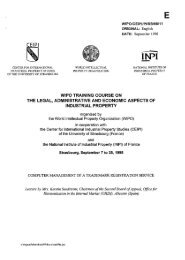WIPO Journal - World Intellectual Property Organization
WIPO Journal - World Intellectual Property Organization
WIPO Journal - World Intellectual Property Organization
Create successful ePaper yourself
Turn your PDF publications into a flip-book with our unique Google optimized e-Paper software.
The Economic Effects of Geographical Indications<br />
on Developing Country Producers: A Comparison<br />
of Darjeeling and Oolong Teas<br />
Deepthi Elizabeth Kolady *<br />
Research collaborator with International Food Policy Research Institute; visiting fellow<br />
at Cornell University<br />
William Henri Lesser **<br />
Professor at the Dyson School of Applied Economics and Management, Cornell University<br />
Chunhui Ye ***<br />
Associate Researcher at the China Academy for Rural Development, School of<br />
Management, Zhejiang University, China<br />
Developing countries; Economics and law; Geographical indications; Tea<br />
The general perception about geographical indications (GIs) seems to be that benefits will flow to<br />
smallholders in local communities, but the correctness of that assumption has to date not been analysed<br />
empirically. This study provides both a method for calculating the recipients of benefits from GIs as well<br />
as applications to Darjeeling tea (India) and Oolong tea (China). Our analysis suggests that countries<br />
must select their GIs very carefully as the confluence of product familiarity in international markets and<br />
land ownership patterns needed for the generation and widespread distribution of benefits will be rare<br />
events.<br />
Introduction<br />
The Uruguay Round of the WTO was premised on a purported balance of enhanced market access, with<br />
developing countries expanding access for manufactured products while developed countries improved<br />
access for agricultural products. Many observers believe the execution was anything but balanced, with<br />
developing countries indeed reducing barriers to manufactured goods while developed countries largely<br />
reneged on a commitment to improve access for agricultural goods. Unsurprisingly, many developing<br />
country representatives have protested, with some of the strongest objections focused on the upward<br />
harmonisation of minimal international intellectual property rights (IPR) protection standards, as specified<br />
in the Agreement on Trade-Related Aspects of <strong>Intellectual</strong> <strong>Property</strong> Rights (TRIPS). TRIPS requires,<br />
among other changes, that national laws provide IPR protection for pharmaceutical products and plants.<br />
One of the several TRIPS-mandated forms of protection has the potential to enhance the value of largely<br />
agricultural exports from developing countries. This form, known as geographical indications (GIs), is<br />
little used by developing countries. The European Commission has identified about 900 GIs in Europe<br />
* Email: dek28@cornell.edu.<br />
** Email: whl1@cornell.edu.<br />
*** Email: chhye@zju.edu.cn.<br />
(2011) 2 W.I.P.O.J., Issue 2 © 2011 Thomson Reuters (Professional) UK Limited<br />
157


